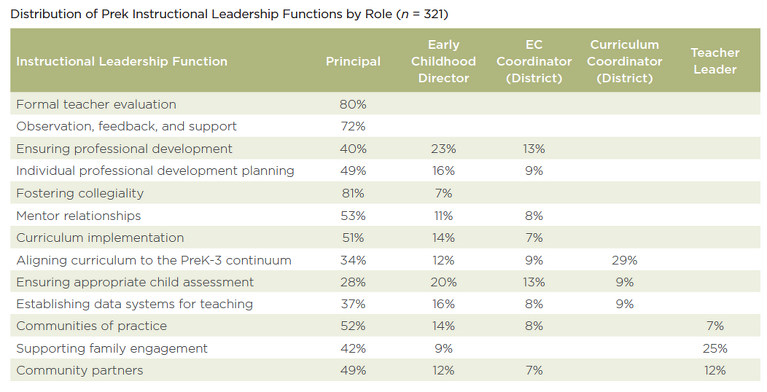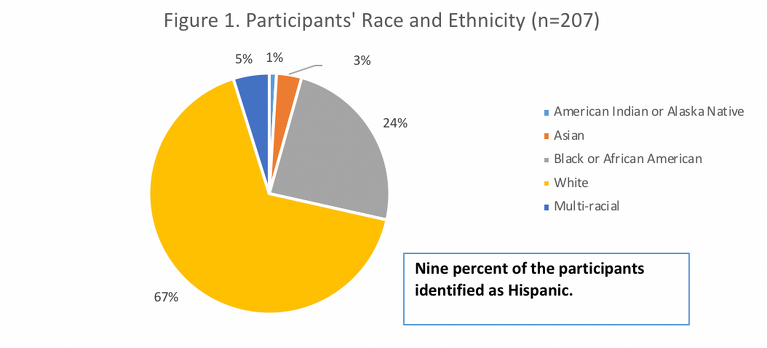Welcome to your hub of resources specifically created for those who are interested in early childhood leadership.
Pedagogical Leadership

November 21, 2024
The BAS Assessor Reliability Training provides an in-depth analysis of the items and quality indicators in the Business Administration Scale. This training is designed for individuals who want to ensure that the BAS assessments are valid, reliable, and administered consistently across programs. The training concludes with a reliability test and participants who are 85% or more reliable with the national anchors are eligible to apply for BAS Certification for an additional fee. Presented by: Robyn Kelton, Director of Research and Evaluation, Paula Steffen, Manager of Quality Supports and Evaluation, Yvonne Williams, Quality Training Specialist, and Isabel Landa, Quality Training Specialist
By Danny Crumpton
•
October 23, 2024
Business Administration Scale (BAS) Assessor Certification is valid for two years and may be renewed through a recertification process. Recertification is also valid for a two year period and can be renewed once. This registration is for your FIRST recertification (2 years after your initial certification).

October 22, 2024
The PAS 3E Assessor Reliability Training provides an in-depth analysis of the items and quality indicators in the Program Administration Scale, 3rd Edition. This training is designed for individuals who want to ensure that PAS assessments are valid, reliable, and administered consistently across programs. The training concludes with a reliability test and participants who are 85% or more reliable with the national anchors are eligible to apply for PAS-3 Certification for an additional fee. Presented by: Paula Steffen, Manager of Quality Supports and Evaluation, Yvonne Williams, Quality Training Specialist, and Isabel Landa, Quality Training Specialist
By Marie Masterson, Ph.D.
•
October 4, 2022
This document may be printed, photocopied, and disseminated freely with attribution. All content is the property of the McCormick Center for Early Childhood Leadership.
By Paula Steffen
•
July 15, 2019
This document may be printed, photocopied, and disseminated freely with attribution. All content is the property of the McCormick Center for Early Childhood Leadership.
By Dr. Jill Bella
•
March 12, 2019
This document may be printed, photocopied, and disseminated freely with attribution. All content is the property of the McCormick Center for Early Childhood Leadership.
By Marie Masterson, PhD
•
March 4, 2019
This document may be printed, photocopied, and disseminated freely with attribution. All content is the property of the McCormick Center for Early Childhood Leadership.
By Dr. Jill Bella
•
January 14, 2019
This document may be printed, photocopied, and disseminated freely with attribution. All content is the property of the McCormick Center for Early Childhood Leadership.
By Marie Masterson
•
December 19, 2018
This document may be printed, photocopied, and disseminated freely with attribution. All content is the property of the McCormick Center for Early Childhood Leadership.
By Dr. Jill Bella
•
September 10, 2018
This document may be printed, photocopied, and disseminated freely with attribution. All content is the property of the McCormick Center for Early Childhood Leadership.
By Leslie Gilbert
•
January 4, 2017
This document may be printed, photocopied, and disseminated freely with attribution. All content is the property of the McCormick Center for Early Childhood Leadership.

By McCormick Center
•
September 7, 2016
This resource is part of our Research Notes series. The upsurge in adding preK to elementary education has many principals and district leaders facing uncharted waters. School systems designed for traditional elementary education may not be a good fit for preK, especially for instructional leadership. Some concerns have been raised about whether principals are prepared to support and supervise preK teachers. 1,2 The McCormick Center partnered with the National Association for Elementary School Principals (NAESP) and New America to explore instructional leadership in school-based preK classrooms across the U.S. NAESP members were surveyed about various aspects of instructional leadership in preK. This study expands our understanding of who is providing instructional leadership and how specific functions are distributed. SAMPLE An online survey—the National Principals’ Survey on Early Childhood Instructional Leadership 3 —was conducted in January 2016 with the NAESP membership. There were 459 principals who fully completed at least one section of the survey and of these, 321 (70%) reported they had an early learning program in their school. Respondents’ schools were located in 49 states or territories and the District of Columbia. Of the schools with preK, 67% offered preK up to middle school, 18% had preK and primary classrooms, and 15% were exclusively preK classrooms. The average preK enrollment of all the schools that offered early childhood education was 90 children. Only one-fourth of the principals of schools with preK programs held early childhood certification. A majority of principals, however, had some coursework in early childhood education and had teaching experience in early childhood or elementary classrooms. RESULTS Most of the instructional leadership functions were primarily performed by individuals with five role titles—principal, early childhood director, early childhood coordinator at the district level, district curriculum coordinator, and teacher leader. The following table shows the percentage of schools in which the primary person responsible for various instructional leadership functions was identified with one of these five role titles.


